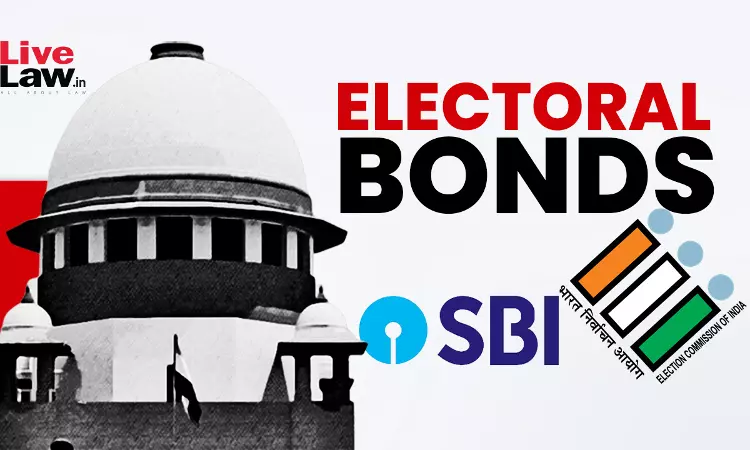Article on Electoral bonds
Key Points from the Article on Electoral Bonds:
Unmet Expectations:
The electoral bonds scheme, intended to curb the influence of black money in elections, failed to transform Indian politics as envisioned. Despite its introduction, the conduct of elections remains largely fueled by illegal funds.
Disparity Between Rhetoric and Reality:
Indian politics suffers from a significant gap between professed ideals and actual practices. Elected leaders, often serving the interests of their financiers, fail to represent the true interests of their constituents, leading to a democratic deficit.
Systemic Issues:
The root cause of this gap lies in systemic issues such as weak accountability, prevalent feudal mindset, and the subversion of democratic institutions. This fosters a culture where vested interests dominate policymaking and governance.
Ineffective Electoral Bonds Scheme:
The electoral bonds scheme was introduced with the aim of providing legitimate funding to political parties, yet it faced criticism for opacity and loopholes. Critics argue that it
merely provided another channel for illegal funds to flow into politics.
Opaque Funding:
The scheme allowed for undisclosed donations, enabling bribes to be given in white for
favors rendered. The lack of transparency in funding sources and the removal of
donation limits facilitated cronyism and manipulation.
Continued Influence of Black Money:
Despite the introduction of electoral bonds, illegal funds remain a primary source of political funding, revealing the scheme’s inadequacy in addressing the root issue of black money in politics.
Exposing Cronyism:
Data on electoral bond transactions shed light on the nexus between political funding
and policymaking, revealing instances of quid pro quo and manipulation. This highlights
the erosion of democratic principles and accountability in Indian politics.
Weaknesses in Democracy:
The electoral bonds scheme underscores the weakening of Indian democracy, where
electoral processes are increasingly driven by financial influence rather than democratic ideals. It reflects a broader trend of undermining opposition voices and democratic
institutions.
Foreign Contribution Regulation Act
FCRA – In news?
Extension of Validity:
The Union Home Ministry has extended the validity of the Foreign Contribution
(Regulation) Act (FCRA) registration for nongovernmental organizations (NGOs) and
associations until June 30.
Renewal Requirement:
FCRA registration, necessary for NGOs to receive foreign funds, needs renewal every
five years. Many NGOs’ registrations were due for renewal since September 29, 2020.
Repeated Extensions:
Due to delays in processing applications, the Ministry has extended the validity of NGOs’
registrations at least nine times since 2020.
Extension Criteria:
NGOs whose registration validity was extended until March 31, and those with pending
renewal applications, will have their validity extended until June 30, 2024, or until the
renewal application is processed, whichever occurs earlier.
Consequences of Refusal:
If an NGO’s renewal application is refused, its registration certificate will be deemed
expired from the date of refusal. In such cases, the NGO cannot receive or utilize foreign
contributions.
Additional Extension:
NGOs whose five-year validity period ends between April 1 and June 30, 2024, and
those that applied for renewal before expiry, will also have their validity extended until
June 30, or until their renewal application is processed, whichever occurs earlier. About Foreign Contribution (Regulation) Act
The Foreign Contribution (Regulation) Act (FCRA) is a significant piece of legislation in
India aimed at regulating the acceptance and utilization of foreign contributions or
donations by individuals, associations, and companies.
Background and Purpose:
• FCRA was enacted in 1976 to regulate the acceptance and utilization of foreign
contributions or donations by individuals, associations, and companies, to ensure that
such contributions do not adversely affect national interest or security.
• The primary purpose of FCRA is to prevent foreign funding from being used for
activities that may disrupt the social, economic, or political fabric of India.
Key Provisions:
Registration:
NGOs and other entities seeking to receive foreign contributions must
register under FCRA. Registration is mandatory and must be renewed every five years.
Foreign Contribution: FCRA defines “foreign contribution” as currency, articles, or
other material gifts received from foreign sources.
Prohibited Activities:
FCRA prohibits the use of foreign contributions for activities
detrimental to national interest, including activities that may affect India’s sovereignty
and integrity or public order.
Accountability and Reporting:
Registered entities must maintain detailed accounts of foreign contributions received and their utilization. They are required to submit annual reports to the government, providing information on the receipt and utilization of foreign funds.
Penalties:
FCRA stipulates penalties for violations, including cancellation of registration,
seizure of assets, and imprisonment for individuals found guilty of non-compliance.
Amendments and Revisions:
• Over the years, FCRA has been subject to amendments and revisions to strengthen
its provisions and enhance transparency in the utilization of foreign funds.
• Recent amendments have focused on tightening regulations, increasing
accountability, and preventing misuse of foreign contributions for activities detrimental
to national interest.
Criticisms and Controversies:
• FCRA has faced criticism for its stringent provisions, which some argue may impede
the legitimate activities of NGOs and civil society organizations.
• There have been concerns about the selective enforcement of FCRA provisions, with
allegations of political bias in targeting organizations critical of the government.
Impact and Significance:
• FCRA plays a crucial role in ensuring transparency and accountability in the receipt
and utilization of foreign contributions, particularly in the context of NGOs and
charitable organizations.
• By regulating foreign funding, FCRA aims to safeguard national interests and prevent
external interference in India’s domestic affairs.

